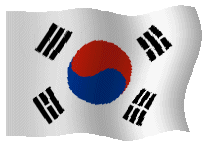
Useful information for visitors to KoreaInternational telephone prefix
Korean international telephone prefix number is 82.
Border formalities
Any foreign visitors wanting to enter the Republic of Korea must have a valid passport. Those who have no nationality must obtain an entry permit issued by a Korean embassy or consulate abroad in lieu of a passport. A laissez - passer issued by the U.N. is also recognized as valid.
From March 1, 1998, all foreigners who have U. S. visas, re-entry permits or green cards may stay in Korea for a short period with no entry visa. The result will be a great increase in the number of people permitted to remain in Korea without visas.
Among peoples of 31 countries who previously required entry visas even though their stays in Korea were very brief, visitors from 29 countries (Cuba and Macedonia are excepted) now may stay in Korea for 15 days to the maximum if they have U. S. visas and airplane tickets.
Countries whose nationals are permitted to enter without visas are 12 nations separated from the former Soviet Union (such as Russian Federation, Ukraine and Kazakhstan), Croatia, Bosnia-Herzegovina, China, Mongolia, Vietnam, Laos, Cambodia, Palestine, Albania, the Philippines, Iran, India, Nepal, Sri Lanka, Myanmar, Nigeria and Ghana.
Visitors who plan to stay in Korea for longer than 15 days must obtain visas before coming to Korea.
Special visa exemptions exist between Korea and the countries listed to the above, provided that their citizens do not participate in remunerative activities while visiting the Republic.
Alien Registration
Customs
Tourists can bring in Korea all their personal belongings without any limitations. Duty-free allowance is 200 cigarettes, one bottle (1 l) of alcoholic beverage, 1 kg coffee or tea, perfume for personal use. You should declare: sport/camping-, professional radio-, TV-, HIFI-, or photo-equipment.
Religious Services
A wide range of religions are practiced in Korea. Buddhism, Christianity and Confucianism are the three most popular ones. Some places of worship conduct services in English and other languages as well as in Korean. For further information, consult the Saturday edition of The_Korea_Times or Korea_Herald.
Money
The unit of Korean currency is the won (indicated as
Credit cards
International credit cards such as Visa, Mastercard, American Express, Diners Club, and JCB are widely accepted at the major hotels, department stores and restaurants in the larger cities. You may be requested to show your passport.
Tax
A value-added tax (VAT) is levied on most goods and services at a standard rate of 10% and is included in the retail price. In tourist hotels, this 10% tax applies to rooms, meals and other services and is automatically added onto the bill.
Usual working hours
Government offices are open between the hours of 9 a.m. and 6 p.m. from March to October and between 9 am and 5 pm from November to February. On Saturdays, they open at 9 am and close at 1 pm.
National holidays
Time
Korea does not have Daylight Savings Time.
Tipping
Tipping is not a traditonal Korean custom. A 10% service charge is added to the bill at all tourist hotels and tipping is not expected. It is not necessary to tip a taxi driver unless he assists you with luggage or provides an extra service.
Emergencies
The hotel front desk or hotel manager can arrange for a doctor or an ambulance in an emergency. If you need a doctor on the street, ask a policeman or passersby for assistance. A police box can be found on every major street. In addition, AEA International Korea Ltd. provides a 24-hour emergency service for foreigners, acting as a link between patient and the Korean hospitals for a fee. For details, contact AEA International Korea Ltd.
Address: 5F, Shindong Bd. 726-164, Hannam-dong, Yongsan-gu, 140-210 Seoul, Korea. Telephone: (02) 790-7561, Fax (02) 790-6785
English is spoken in some general hospitals, and the larger ones, such as Samsung Medical Center, Severance Hospital and the Asan Medical Center, have international clinics where bilingual nurses can provide you with assistance. It is advisable to carry traveler's insurance.
News in a foreign language
Important phone numbers
Electrical current
In Korea, outlets for both 110 and 220 volts are usually available, although many newer hotels have only 220 volt current. Always check the voltage of the power supply before using equipment.
Post
Postal Services
The easiest way to post a letter or a package is to ask the front desk of your hotel, but you can also use the post office directly.
Telegrams
Telegrams can be written at any telephone office and may also be sent by telephone by dialing115 (domestic) or 005 (international). Domestic telegrams in Korean cost
A tip for visitors
Information and assistance are readily available at KNTO's Tourist Information Center (TIC) and at information counters at the three international airports and at major tourist sites. They provide city maps, brochures and useful information on tours, shopping, dining and accommodations. The hours of operation differ somewhat around the country, but KNTO's TIC and the Seoul City Tourist Information Center are open every day from 9 am to 6 pm (Nov. - Feb. from 9 am to 5 pm).
Lost & Found
If you should misplace any property or leave it on public transport, the following office will help you: Lost and Found Center of the Seoul Metropolitan Police Bureau: 102, Hongik-dong, Songdong-gu, Seoul. Telephone: (02) 299-1282, Fax: 299-1282 (Korean speakers only).
Tourist Complaint Center
Overseas visitors to Korea who experience any inconvenience or who have any suggestions should call or write the Tourist Complaint Center, operated by the Korea National Tourism Organization.
Address: K.P.O. Box 1879, Seoul 110-618, Korea, telephone: (02) 735-0101, Email: tourcom@www.knto.or.kr
|
 ). Coin denominations are
). Coin denominations are